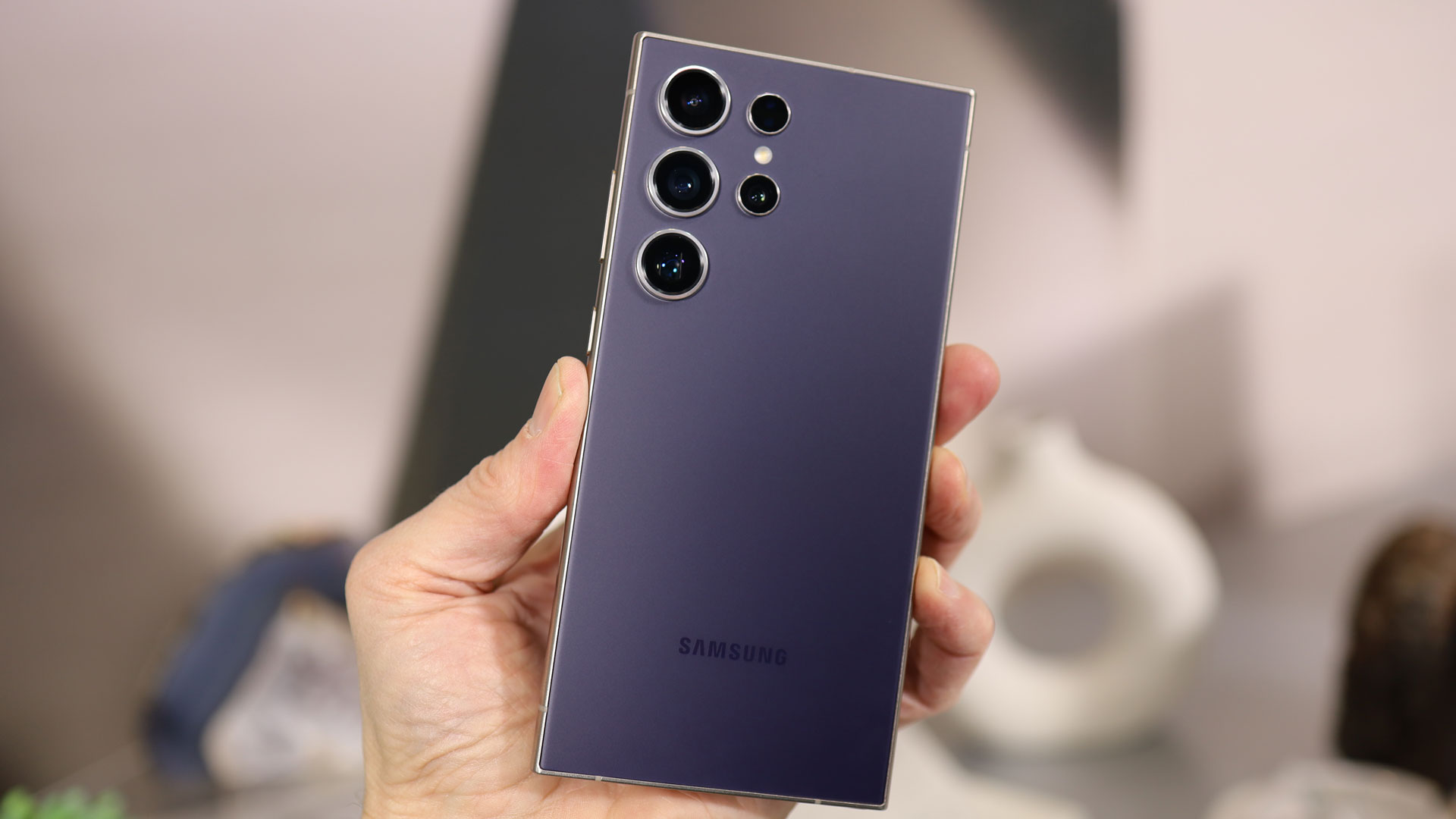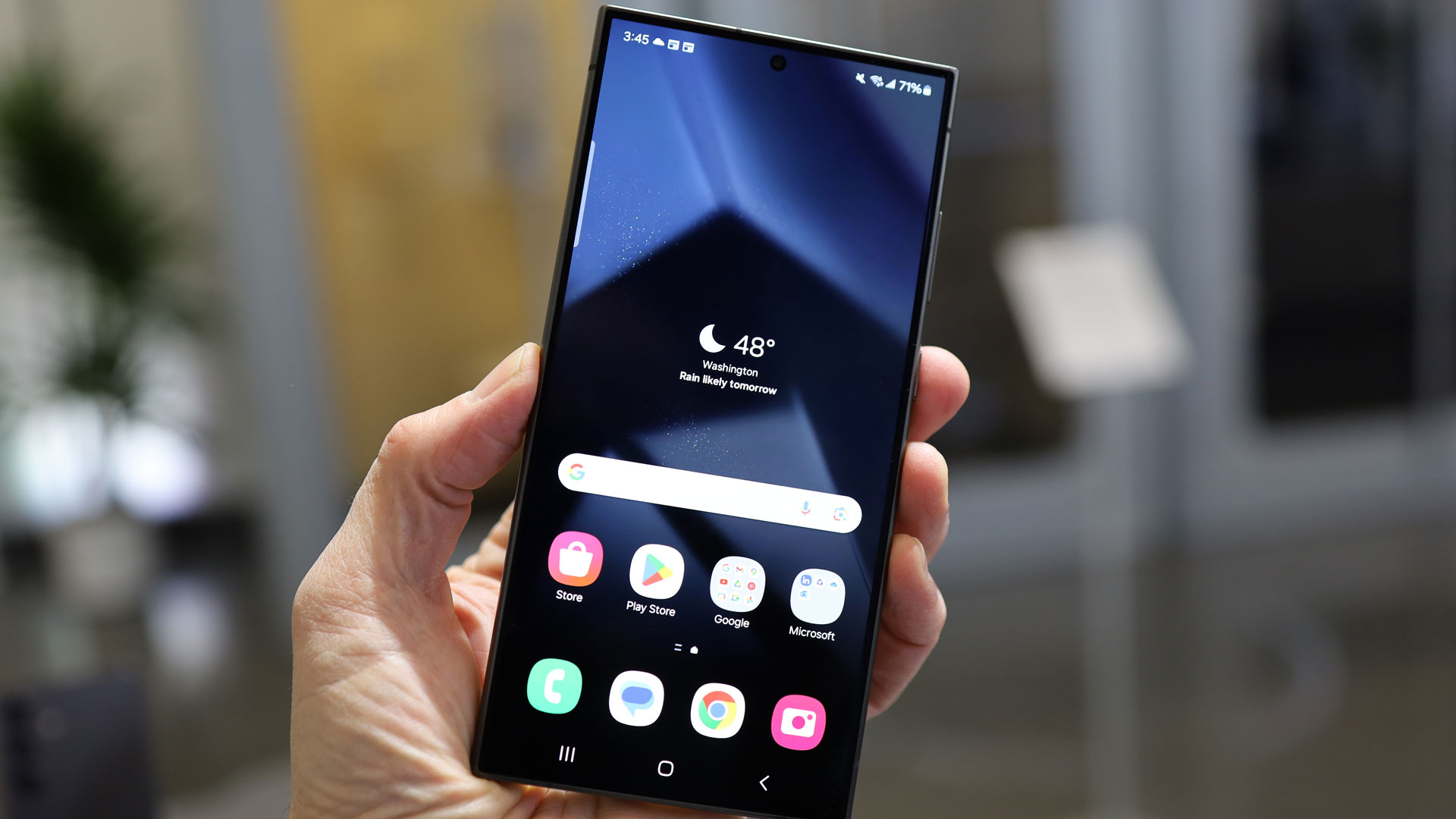Samsung's Galaxy AI is more useful than a chatbot, and it might transform how you use your phone
No chatter just utility for the Samsung Galaxy S24

Sign up for breaking news, reviews, opinion, top tech deals, and more.
You are now subscribed
Your newsletter sign-up was successful
AI is now casually thrown about like some verbal tick appended to the end of every sentence uttered by modern tech companies. Yet, I find myself believing in Samsung's AI-imbued Samsung Galaxy S24 lineup and I think you may, too.
You'd be forgiven if you felt overwhelmed by the sheer volume of AI-related features unveiled during Wednesday's breakneck Samsung Unpacked event. A drinking game set to every time Samsung said "AI" would have left even the stoutest drinker in a stupor.
This was, though, no mere game to tout Samsung's commitment to a future artificial intelligence strategy. Samsung painted a picture of a Samsung Galaxy S24 lineup transformed by its new Galaxy AI. I wouldn't believe it if I hadn't just days before experienced almost every AI innovation Samsung has on offer. This is practical AI with a point and multi-pronged purpose. It's also not, officially, at least, "Artificial Intelligence", as Samsung spells out "AI" to mean"Advanced Intelligence", a nice umbrella term that could include "Artificial Intelligence" and other types of algorithmic magic.
Samsung's Galaxy AI (which is both its home-grown AI and what it's gathered from its partner, Google) is peppered throughout the Samsung Galaxy S24 Ultra (as well as the lesser Galaxy S24 and S24 Plus). It's in, to name a few areas:
- Chat
- Notes
- Recorder
- Calls
- Photography
- Video
- Search
I tried out virtually all of these features and found almost all of them useful and not the least bit intrusive. There was even one that delighted me. Sure, Google unveiled the first "AI Phone" late last year – the Google Pixel 8 – but many of its coolest AI cataphiles were not available on launch and some, like Best Take might be taking image magic a bit too far for most folks (head swapping has always been frowned on).
Samsung's Galaxy AI features are generally easy to use, simply crafted, and often proactive. The best illustration is, naturally, in photography where the Galaxy S24 camera system is quietly analyzing your photos and trying to help you make the best of them. In my demonstrations, I saw it find shadows and reflections and offer to fix them with a tap. The non-destructive nature of the AI fixes is appreciated and the final photo quality is why you'll end up sharing those images.
It is often hard to keep track of which AI is Samsung's which is Google's, and which works locally and which ones require access to the cloud. On the Google Pixel 8, some of the AI features (like Magic Eraser, Video Boost, and AI Wallpaper) require an Internet connection. In my relatively brief assessment, it seemed like more of Samsung's AI capabilities were local (or at least a hybrid). The Galaxy S24 series does include the ability to decide at a system level if you want to process your AI data on device. I have to assume that saying yes would turn off some percentage of the Galaxy AI features.
Sign up for breaking news, reviews, opinion, top tech deals, and more.

Overall, though, I had an easy time trying out some of the powerful image manipulation tools.
The tools are powerful enough to let you sometimes change reality a little too much. At one point, we grabbed the image of a skateboarder completing a low jump, moved him three feet up in the air, and tilted him to make the images more dramatic. That's cool but not reality. But it also does useful things like removing unnecessary background objects so people focus on your subject. In my experience, the Samsung Galaxy S24 Ultra did this very well. When I took a selfie with a plant creeping into the shot, I had only to choose the edit feature, run my finger around the offending mini shrub (a little marquee encircles it), and then wait a second for it to be magicked away and with no trace left behind.
AI talk, tone, and text
I do not speak any other languages but have worked with people around the world who are usually kind enough to speak to me in my native tongue. Still, I can see the utility of live translation in calls. When I tried it, it was a little more modal and less flowing than I would like. I spoke in English and it translated and spoke my words in Korean. My Korean counterpart spoke in his native language and the phone translated and spoke it in English. We had to hit the mic button each time to make this work.
I'm a fairly confident messenger on my phone, which means I don't worry too much about my tone. Still, I can acknowledge that I chat with my co-workers differently than I do with my wife. Do I need an AI to help me craft a more appropriate response? I don't know but when I saw it at work a few days ago, I liked how quickly you could switch up tones. "Chill," Shakespeare," and others come from Google's Gemini Nano generative AI. This is the one that is small enough to run locally (hence the "Nano" name). Tone assistance is probably the kind of AI that some will rely on heavily while others like me will probably never use it.
On my iPhone, I rely heavily on Notes to keep track of interviews, random thoughts and ideas, shopping lists, and myriad other text bits. I can appreciate the idea of Galaxy AI making sense of all that, summarizing and organizing thoughts.
In Chat, I was pleased to see how a conversation between me and a Samsung Rep could be recognized as two distinct speakers. It's something that's often lacking in transcription software. Naturally, summarizations of all this would come in handy.
One of the smartest uses of AI I saw was Instant Slow Motion. It's a simple idea: add slow-motion video recording where there was none. For my test, I ran across a room while someone recorded me with the Galaxy S24 Ultra. As I watched, the Samsung rep held her finger down on the recorded video for a few seconds as the system instantly introduced new frames to create a slo-mo effect. If I didn't know that those frames were AI-generated, I would never have suspected a thing. It worked perfectly and I bet it'll be a very popular feature.
Finally, there's the new Circle to Search, which uses AI to understand instantly what you circled with your finger or S Pen. We took a picture of a sneaker and then circled it in the camera app to instantly return accurate results about the brand and model as well as, naturally, where to buy it, and then did the same with a photo a a cactus. I like how this shortens the distance between your perception and search intention. We don't always know what we're looking at. This AI does.
What the Galaxy S24 lineup and Galaxy AI does not introduce is a new virtual assistant. Bixby still exists on the phone but you'll notice that Samsung didn't mention it. Bixby is not getting a Galaxy AI or even Google Gemini injection. Samsung's AI strategy is not about answering the mysteries of the universe. Instead, Galaxy AI focuses on your more prosaic mysteries across search, images, text, calls, video, and notes.
It's not that the Samsung Galaxy S24 Ultra is the perfect AI phone or even the best smartphone overall. It's too early to assess those things. It is though, a rational, well-thought-out, and, in my early estimation useful AI implementation.
You might also like
- Samsung Galaxy S24: price, release date, camera, and everything ...
- Samsung Galaxy S24 preorders: how to get a device with our ...
- Samsung Galaxy S24 Ultra's 5x zoom camera is not the disaster I ...
- Samsung Galaxy Unpacked – we're live at the Galaxy S24 ...
- Hands on: Samsung Galaxy S24 Ultra - What Galaxy learned from ...
- Hands on: Samsung Galaxy S24 Plus review – finally, the Plus has a ...

A 38-year industry veteran and award-winning journalist, Lance has covered technology since PCs were the size of suitcases and “on line” meant “waiting.” He’s a former Lifewire Editor-in-Chief, Mashable Editor-in-Chief, and, before that, Editor in Chief of PCMag.com and Senior Vice President of Content for Ziff Davis, Inc. He also wrote a popular, weekly tech column for Medium called The Upgrade.
Lance Ulanoff makes frequent appearances on national, international, and local news programs including Live with Kelly and Mark, the Today Show, Good Morning America, CNBC, CNN, and the BBC.